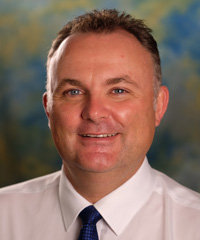As the NSW Labor Government marked one year in office on March 25, Member for Gosford Liesl Tesch said it had achieved some major milestones, passed 74 bills and delivered on major election commitments.
“We were elected with a clear mandate to rebuild essential services, invest in our frontline workers, address the housing crisis, and stop privatisation,” she said.
“That is exactly what we are doing.
“The NSW Government’s number one priority is helping people across NSW with cost-of-living pressures; at the centre of that is housing.
“We have unveiled some of the most transformative planning reforms in NSW that will increase supply, making housing more affordable and in well-located areas close to transport, jobs and existing infrastructure.”
Tesch said to help tackle the cost of living, Labor had removed the former government’s “unfair wages cap” and delivered a 4.5 per cent pay rise for essential workers in 2023-24 – the biggest pay rise in a decade.
“We’ve also given NSW teachers the largest pay rise in almost three decades and delivered professional pay and recognition for paramedics, ensuring they are amongst the highest paid in the country,” she said.
“In addition, we’ve introduced a $60 toll cap.”
Tesch said statewide the Government had banned mobile phones in public high schools across NSW, announced 100 new public preschools, transitioned 16,000 teachers and support staff from temporary contracts to permanent roles, and started the school year with teacher vacancies down by 20 per cent.
She said the Government has committed to paying Student Police Officers while they study at the Goulburn Police Academy and has started rolling out Safe Staffing Levels in NSW public hospitals.
“In 12 months, we have slashed the number of overdue surgeries by over 80 per cent from 14,000 to 2,000 so people aren’t waiting in pain for important surgery,” she said.
Tesch said the Government had put the NSW energy transition back on track, legislating a net zero target and supporting renewable projects.
The Government has committed $172M to save koalas in the wild and announced four new National Parks plus the expansion of Wolli Creek Regional Park.
It is building new public transport infrastructure and reduced debt by $13B.
But Tesch said there is more to do.
“We have been busy investing in structural reform across NSW, rebuilding our essential services and providing support to the people of NSW and the Central Coast when people need it most,” she said.
““We have an ambitious agenda, which will not happen overnight, (but) we are committed to helping the people of NSW.
“We have much more work to do as we continue to build a better future for the Coasties.”

But Member for Terrigal Adam Crouch is not as impressed with the Government’s first 12 months in office.
Having completed his first year in Opposition since he was first elected Liberal Member for Terrigal in 2015, Crouch said the Coast’s Labor MPs were “still struggling with taking responsibility for their government’s broken promises and continual let downs to the people of the Central Coast”.
He said they were eager to cut the ribbons for projects funded by the former Liberal-National Government, such as the Woy Woy Ambulance Station, the upgrade of the Tuggerah Railway Station, the new University Campus in Gosford and the Norah Head Community Hall.
“Rather than call out Chris Minns for his cuts to cost-of-living vouchers and reneging on free parking at Gosford Hospital for visitors and staff, it is crystal clear that they are more interested in enjoying the trappings of office,” he said.
Crouch said vital programs like the Active Kids and Creative Kids vouchers and the Regional Seniors Travel Card would have provided strong relief for everyone right across the region as cost of living pressures rise.
“We are focused on putting policy forward to benefit the people of the Central Coast and NSW,” he said of the Liberal Party.
“This included our Minerals Legislation Amendment, which forced the government to adopt our position to ban seabed mining to protect our precious marine life and ecosystems.”




This will become a long term issue, an eyesore. height restrictions and residential density are set in place for a reason as are environmental and
water rules. Why are rules simply changed whenever a developer wants that? why aren’t developers required to submit plans that fit within the rules?